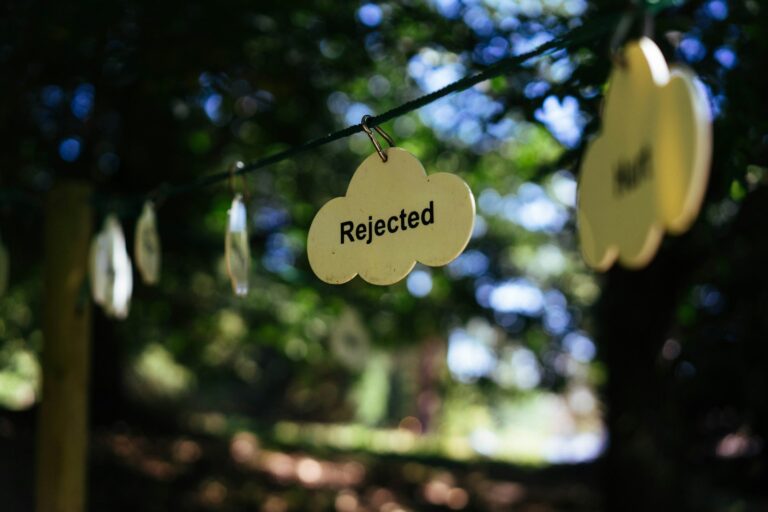Loneliness is a universal human experience, yet it remains one of the least discussed challenges in modern society. While social connections are often deemed essential for happiness, many individuals find themselves living in loneliness, navigating life primarily on their own. Whether by choice or circumstance, doing things alone can be a double-edged sword—liberating for some, daunting for others. Understanding and embracing solitude is not simply about coping; it is about discovering the power within yourself when you stand alone.
Understanding Loneliness: More Than Just Being Alone
It’s important to distinguish loneliness from solitude. While solitude refers to being physically alone, loneliness is the emotional response to perceived social isolation. One can feel lonely in a crowded room, just as one might feel content and fulfilled while living alone. Recognizing this distinction is the first step toward transforming loneliness into a space for reflection and growth.
The Psychology of Loneliness
Loneliness is complex and multifaceted. Psychologists categorize it as a subjective feeling, influenced by:
- Personal expectations regarding relationships
- Quality and depth of social interactions
- Life transitions such as moving to a new city, divorce, or bereavement
- Mental health issues like depression and anxiety
Chronic loneliness can have adverse effects on physical and mental health, including increased risk of cardiovascular issues, weakened immunity, and higher rates of anxiety and depression. However, being alone does not have to equate to being lonely.
The Stigma Around Doing Things Alone
Many cultures valorize sociability, often associating solo activities with sadness or failure. Whether it’s dining out, traveling, or even enjoying a movie, societal judgments can make people feel embarrassed about being alone. Yet, millions of people engage in these activities solo by circumstance or choice, proving that being by oneself can be both normal and enjoyable.
Breaking free from the stigma requires a change in perspective, focusing on self-acceptance and the recognition that time spent alone is not wasted—it’s invested in your personal growth.
Transforming Loneliness Into Empowerment
Thriving in solitude isn’t about filling the void with distractions. It’s about cultivating a fulfilling life on your own terms. Here’s how you can transform loneliness into an empowering force:
1. Understand Your Triggers
Notice when feelings of loneliness arise. Are they linked to specific times, activities, or thoughts? Awareness allows you to address the root cause rather than just the symptoms.
2. Practice Self-Compassion
Be gentle with yourself. Loneliness is a human experience and does not make you flawed. Treat your emotional self as you would a close friend going through a tough time.
3. Redefine Alone Time
Think of alone time not as isolation, but as an opportunity for self-discovery, relaxation, and creativity. Many people report their most profound insights and creative ideas emerge during periods of solitude.
4. Build a Ritual of Solo Activities
- Walking in nature: Connect with the environment and reflect without distractions.
- Exploring hobbies: Cooking, painting, or writing can offer deep satisfaction and purpose.
- Solo traveling: Venture on small day trips to gain confidence and independence.
- Meditation and mindfulness: Develop inner peace and self-awareness.
5. Connect With Your Community—On Your Terms
Solitude does not preclude connection. Engage in community activities or online forums that align with your interests. Volunteer work, clubs, or classes can provide meaningful engagement without the pressure of forming deep relationships immediately.
Doing Things by Yourself: Overcoming Barriers and Enjoying Freedom
The thought of doing activities alone can provoke anxiety or self-consciousness, but these fears can be addressed—and ultimately replaced with confidence. Here are actionable steps to help get started:
Step-By-Step: Embracing Solo Activities
- Start Simple
- Try activities like reading in a café or visiting a museum. These environments are naturally suited for solitary enjoyment.
- Set Personal Goals
- Make a list of activities you’ve always wanted to do and set achievable goals to get started, from trying a new restaurant to attending a fitness class.
- Challenge Your Inner Critic
- Notice and question negative self-talk. Replace thoughts like “People will judge me” with “I am choosing this for myself.”
- Celebrate Your Independence
- Acknowledge milestones. Every new experience adds to your self-confidence and resilience.
- Document Your Journey
- Journaling, photography, or blogging about your solo experiences can help you track progress and inspire others.
Benefits of Doing Things Alone
- Authentic enjoyment: Pursue your interests without compromise.
- Personal growth: Flexibility and decision-making skills improve through self-reliance.
- Mental clarity: Distraction-free time leads to greater reflection and mindfulness.
- Increased confidence: Successfully navigating the world solo builds self-esteem.
When Loneliness Becomes a Concern
While there is power in solitude, chronic or persistent loneliness is a legitimate mental health concern. It can lead to depression, anxiety, sleep disturbances, and even physical health problems. Here’s how to recognize when professional support may be necessary:
- Prolonged sadness that doesn’t improve with self-care
- Loss of interest in previously enjoyable activities
- Difficulty performing daily tasks
- Feelings of hopelessness or worthlessness
- Thoughts of self-harm or suicide
If you or someone you know is experiencing any of these symptoms, reaching out to a mental health professional can offer vital support and effective strategies for recovery.
Nurturing a Healthy Relationship with Yourself
The quality of your relationship with yourself sets the tone for every other relationship in your life. Solitude offers an opportunity to:
- Develop self-awareness: Understand your values, strengths, and needs.
- Enhance self-compassion: Learn to forgive and accept yourself fully.
- Foster resilience: Build the inner resources needed to navigate challenges.
These benefits extend beyond your solo experiences, positively impacting your interactions with others when opportunities arise.
Tips for Cultivating a Fulfilling Solo Life
Here are practical tips for nourishing a fulfilling life while living alone or spending significant time in solitude:
- Set a daily routine: Structure creates stability and purpose.
- Stay physically active: Movement is a proven mood-booster, whether it’s yoga, walking, or dancing in your living room.
- Create a comforting environment: Decorate your space with colors, scents, and memorabilia that make you feel at home.
- Learn something new: Embrace lifelong learning by taking online courses, reading, or teaching yourself a new skill.
- Use technology mindfully: Connect digitally, but balance screen time with offline interests.
- Express gratitude: Keep a gratitude journal to focus on positive moments and achievements.
Building Connections Without Compromising Solitude
Many people worry that embracing solitude means closing the door to social connections. In reality, a healthy balance is possible. You can nurture meaningful relationships while still prioritizing your need for alone time.
- Communicate boundaries: Let loved ones know when you need space, and when you’d welcome company.
- Seek quality over quantity: Pursue relationships that support your wellbeing, rather than simply expanding your social circle.
- Be open to new experiences: Attend gatherings, workshops, or meetups with curiosity rather than obligation.
Building connections at your own pace and on your own terms ensures that your relationships feel nourishing rather than draining.
The Journey from Loneliness to Fulfillment
Living in loneliness and doing things by yourself can be challenging, but it is also an opportunity for profound personal transformation. By embracing solitude, practicing self-compassion, and challenging societal stigmas, you can create a rich, fulfilling life—no matter your circumstances. Remember, solitude is not the absence of connection but the presence of yourself.
If you are struggling, reach out for support and know that you are not alone in your journey. Many people have walked this path and found strength, clarity, and joy on the other side. Your time alone can be a gift—a time to rediscover who you are and what truly matters most to you.




